Girls who follow Pamela's practice should also have followed Pamela's healthy recipes. Pamela's regular diet of chia seeds and raw cacao has been dubbed 'Superfood', a 'peer group' with superheroes.
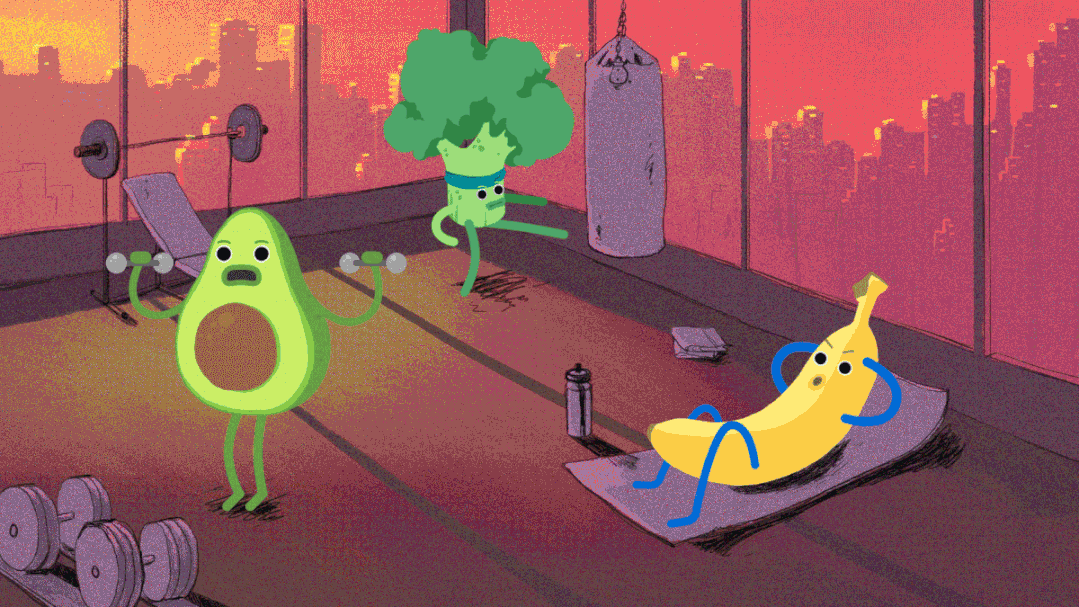
▲ Image from: Keep
Not only that, the "first generation of netflix" avocado, blueberry, "evergreen" acai, kale, familiar goji berries, green tea, reishi, and then the niche track of spicy wood, Noni fruit ...... super food camp is getting richer by the day.
Superfoods have been popular in the European and American diets for a long time, and in recent years they have slowly become known in China, appearing on the tables of supermodels, gym-goers, and bouncing around Instagram and Little Red Book, but the concept has always been controversial - and
Is it super nutrition or super marketing?
Superfoods are just a food
Where do superfoods come from?
According to the T.H. Chan Institute at Harvard University, it didn't come from scientists and nutritionists, but from banana marketing by the United Fruit Company around World War I. In their propaganda, bananas are nutritious and even cure celiac disease, but the current treatment for celiac disease is a gluten-free diet.
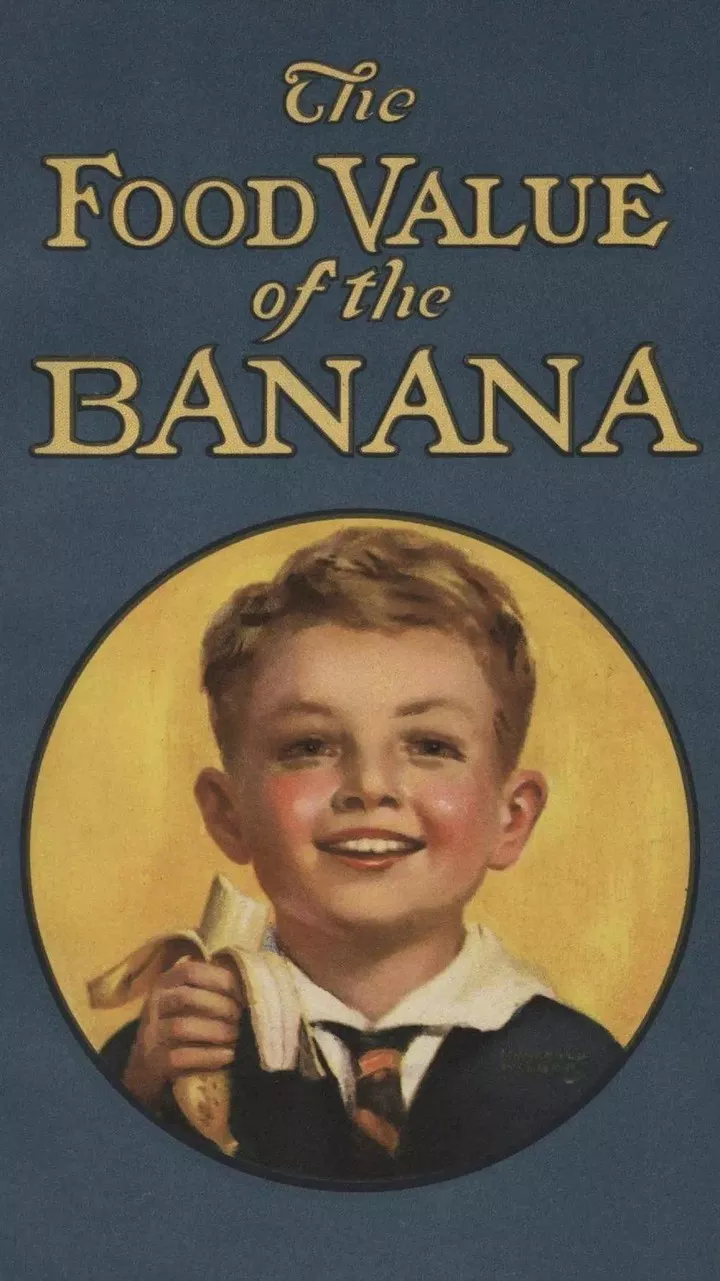
To this day, there are still no scientifically rigorous standards for superfoods. in 2007, the EU banned the marketing of products as 'superfoods' unless there are health claims supported by credible scientific studies.
Generally speaking, superfoods are considered to be "foods with higher than average nutritional value", providing a wide range of important nutrients, including essential nutrients that cannot be produced in the human body, for personal health and prevention of chronic diseases.
But the broadness of the definition has led to a blurring of the face of 'super' itself, and no one can say exactly what the line between it and ordinary is.
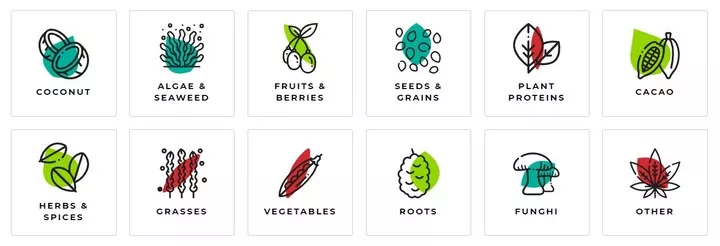
▲ Categories of Superfoods. Image from: Super Nutrients
It is at least certain that 'super' is not omnipotent, and certain superfoods may indeed be higher in certain nutrients than their counterparts, but that does not mean that one food can meet all of the body's nutritional needs, let alone eliminate all diseases.
Like chia seeds, higher calcium content, more dietary fiber than oats, protein comparable to soy and meat, has antioxidants, contains Omega-3 fatty acids that cannot be synthesized by the human body, but the amount suitable for daily intake is limited, and has phytic acid to reduce the absorption of calcium utilization, which is why it contains more calcium but is not as good as milk for calcium.

However, the high relevance of superfoods to nutrition and health has been enough for commercial forces to race in.
There are superfood brands abroad such as Sunfood, Super Nutrients, OMG Superfoods, and Creative Nature.
Because superfoods are regional and origin-focused, Sunfood's partner farms are located around the world, from South America, the Middle East, and West Africa to the Philippine Islands; in order that "no one is ever excluded from a healthy snack again," one of the key features of Creative Nature's products is that they are free of gluten and dairy products, among 14 other major allergens.
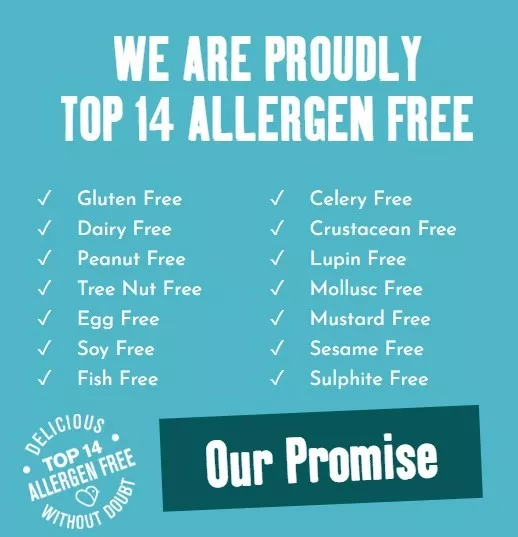
▲ Image from: Creative Nature
The country also has local superfood brands such as SO ACAI and Soileta.
Founded in 2017, SO ACAI started out as a superfood-focused healthy light food store and has been offering current fads like fruit shake bowls and plant-based milk coffee ever since. During the epidemic, SO ACAI often shared science and recipe videos, and in the process of making content and observing the rising health concerns, it was natural for SO ACAI to convert its in-store light foods into packaged foods and tap into the online business.
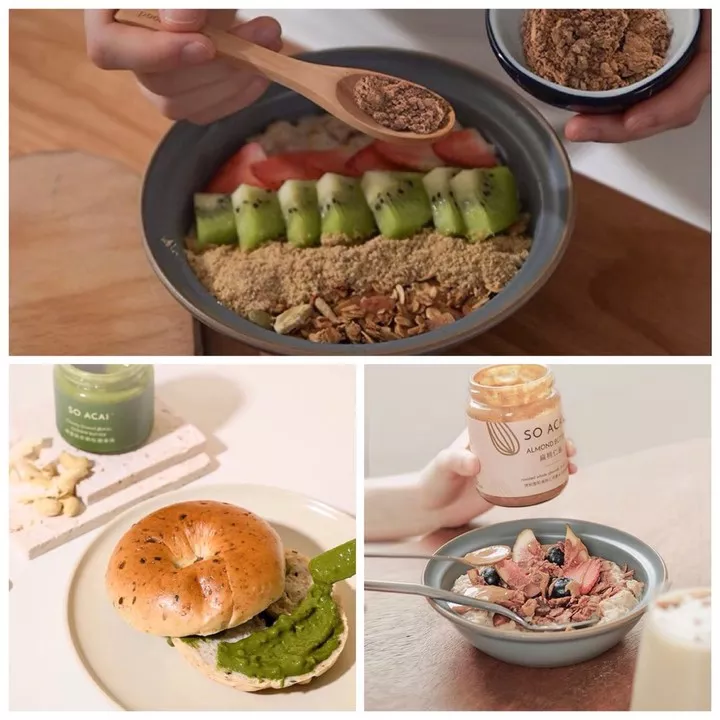
▲ Image from: SO ACAI
As the niche market matures, big companies won't miss the opportunity to step in.
In April 2020, Nestlé launched "nesQino", a personalized health drink solution that includes superfood pouches and basic pouches made with freeze and dry technology to create superfood pouches and basic pouches for quick DIY hot and cold drinks; and in 2018, healthy snack brand Health Warrior was acquired by Pepsi, whose signature product is a chia seed cereal bar.

▲ image description. image from: nestle
Mordor Intelligence research data, the global superfoods market is valued at USD 152.71 billion in 2021 and is expected to to reach US$214.95 billion by 2027, with North America being the largest market and Asia Pacific being the fastest growing market.
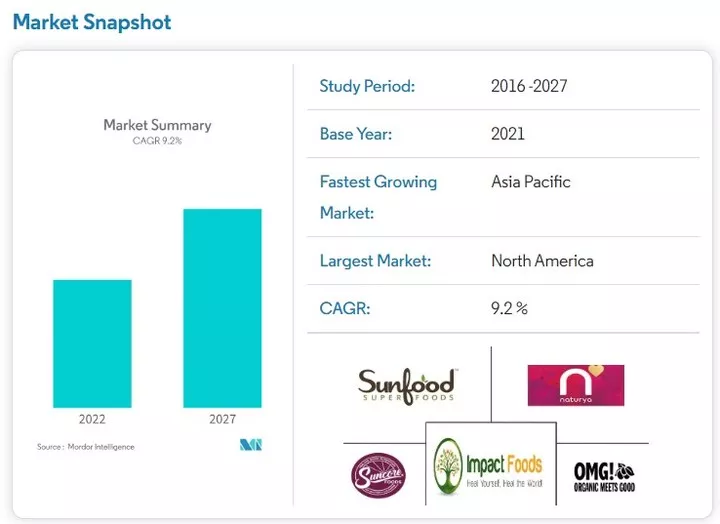
▲ Image from: Mordor Intelligence
Superfoods are nutritious on the one hand, hyperbolic marketing on the other.
Businesses often claim that chia seeds have weight loss effects, but this has not been proven by a 12-week clinical trial.
China's avocado imports, which stood at just 31.8 tonnes in 2011 and reached 43,900 tonnes in 2018, have nothing to do with such talking points as 'forest cream from the southern hemisphere' and the sophisticated lifestyle it invokes.
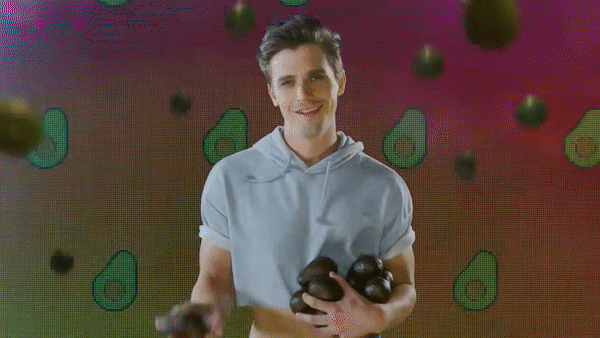
In 1991, the USDA endorsed the antioxidant capacity of blueberries, claiming that antioxidants reduce the number of harmful free radicals in the body. But after confirming that not all functions of antioxidants are related to free radical activity, they removed the relevant database. Sales were only slightly affected, and blueberry production continued to grow each year until 2016.
At the end of the day, a superfood is just a food, don't get carried away with its 'super'.
Maggie and TaoTao, founders of SO ACAI, tell that the primary characteristic of superfoods is that they are nutrient dense, and that while acknowledging that they are nutritious, they should not be deified.
Many people will obsess over what benefits superfoods provide, when in fact it is a highly nutrient dense category of food that is part of the diet, a way to replenish nutrients, and as normal as eating white rice. You don't need to cook deliberately, you can take 3-5 grams or 1-2 spoonfuls at a time and sprinkle it on top of any food, like water, juice, yogurt, toast, etc.
Master of Food Science and Engineering and B site UP master @halo small intestine also pointed out that superfoods should be used as part of a balanced diet that serve as an icing on the cake rather than as a blessing in the snow.
"Eat food, plant-based, not too much"
"Around 1995, processed foods rich in unnatural ingredients contributed to disease, obesity and overall poor health in many people."
This is the self-proclaimed founding context of the superfood brand Sunfood.
The relationship between deeply processed foods with artificial sweeteners, artificial colors, preservatives, etc., and health is not all cause-and-effect, but it does correlate. Between 1998 and 2009, the number of references to the term 'obese' in the New York Times tripled.
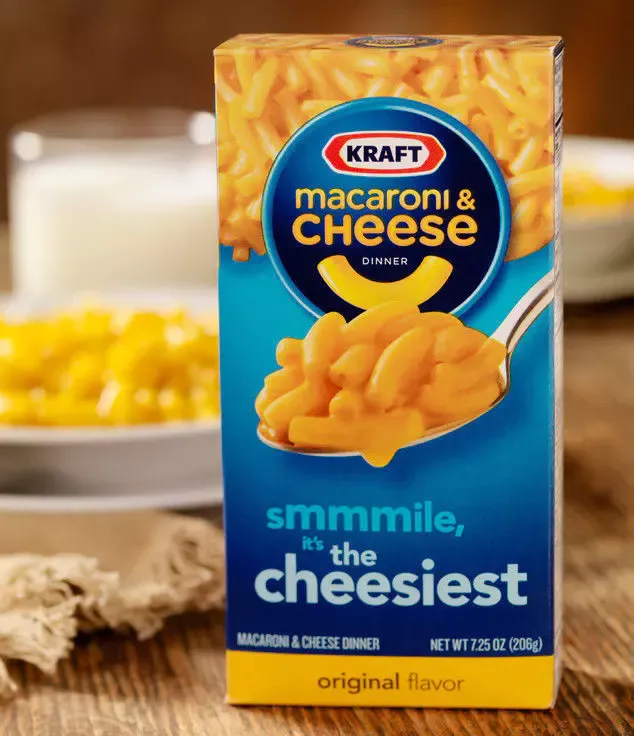
▲ Macaroni and cheese with artificial food coloring.
Healthy, clean, nutritious, natural, no additives ..... Again, these are key words that superfood brands will now emphasize.
This represents a quest for natural foods and a vigilance against deeply processed foods.
Superfoods are not 'all natural' either. What superfood brands do is select good ingredients, good processes, and reduce unnecessary processing and retain a greater degree of nutrition.
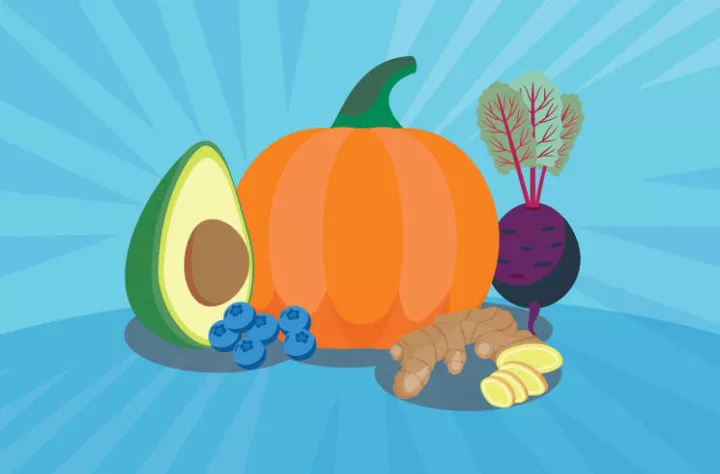
▲ Image from: clevelandclinic
Take flaxseed for example, it is rich in Omega-3 fatty acids, but Omega-3 fatty acids are easily affected by temperature. At the same time, flaxseed needs to be cooked and ground for consumption, as raw flaxseed is slightly toxic and has a hard shell that is not well absorbed without grinding.
Combining these characteristics, SO ACAI's flax meal is cooked at a low temperature below 50 degrees using a custom process, unlike many commercially available products that are over 100 degrees.
Counter-examples of over-processing also abound. "Super juices" from acai, noni and pomegranate may have a lot of sugar added; freshly brewed green tea contains many antioxidants, but bottled green tea is often brewed with poor quality tea and lots of sugar.
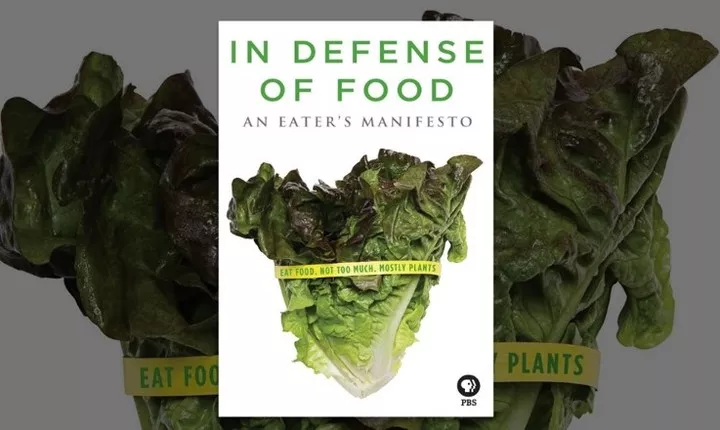
In his book In Defense of Food, diet author Michael Pollan states: eat food, plant-based, not too much.
But isn't it all food we eat?
In Michael Pollan's view, food means natural foods like apples and cauliflower, not processed foods like Coke, potato chips, and white bread. Although his slightly more radical attitude does not prevent appropriate borrowing.
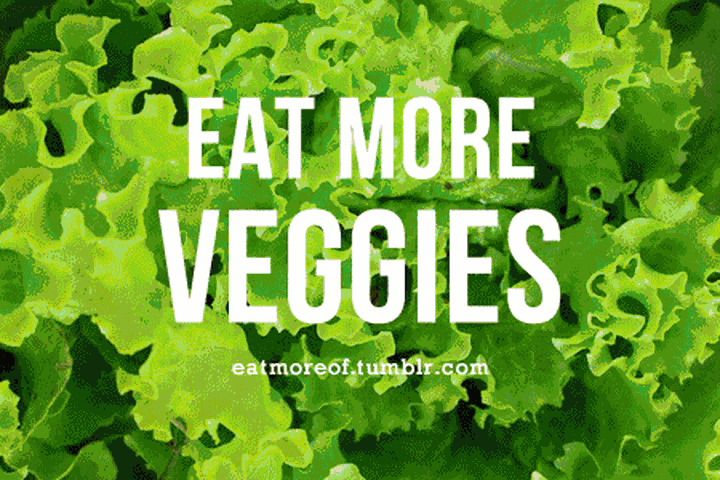
A point connected to it is that many superfoods are all around us and that one should seek out seasonal, local ingredients rather than clinging to some internet superfood, as Australian registered dietitian and Little Red Book blogger @Arielle says.
Eat local, seasonal, organic, fresh food in peace and honestly, eat less processed food, and eat enough of five different vegetables and fruits each day. It's good to add some superfoods to that, there's no need to put the cart before the horse and pay high prices for so-called processed superfood products.

And, as superfoods are meant to be 'discovered' rather than 'invented', perhaps more and more local superfoods will emerge.
Maggie tells, "Probably with some changes in diet, more and more different superfoods will be discovered. In the last two years, domestic monkey mushrooms and reishi have been particularly popular abroad."
In another interesting example, a few years ago blueberries often dominated the superfood list, but there are studies that illustrate that the nutrients of blueberries are also found in berries such as strawberries and cranberries. Experimental psychologist Barbara Shukitt-Hale argues that blueberries originally topped the list purely because it was being studied more frequently.
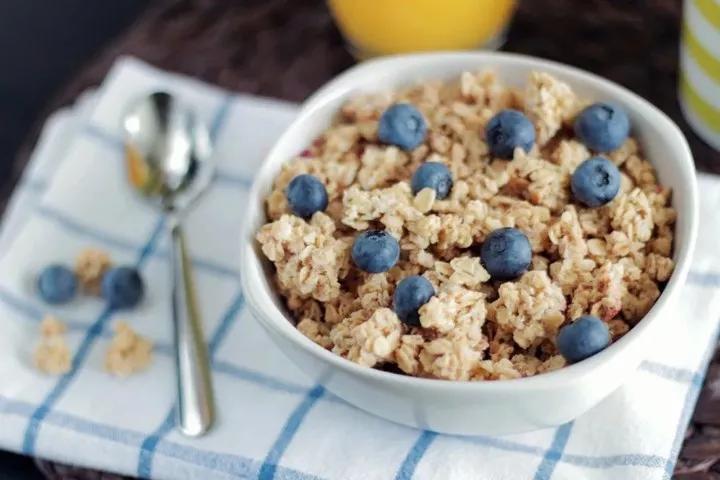
In addition, foods that don't hold the 'super' designation are just as nutritious and just as available for us to explore.
Dietitian Megan Ware says we can incorporate superfoods into a variety of healthy diets if conditions allow, but there's no need to overspend or search too broadly, and don't underestimate the humble apple or carrot.
The controversial crown of 'super' aside, in a larger framework, superfoods are a gateway to informing us about healthy eating and making us conscious of the nutritional value of the foods we eat.
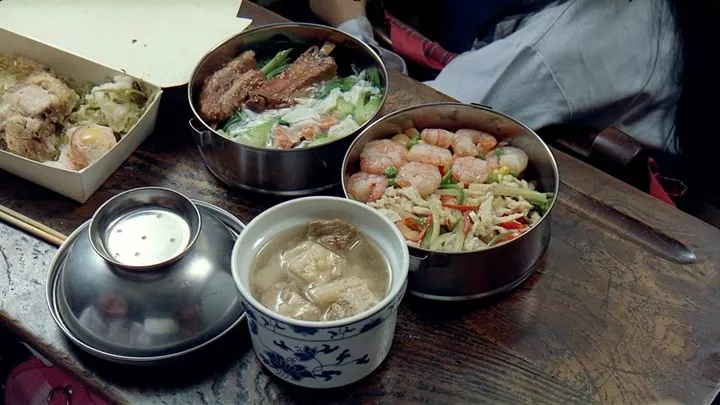
▲ Image from: The Eater
Superfoods are not often found in the diet we're used to, and with a slightly middle-class quality, they're something many people think about after they've had enough to eat and drink, outside of a cup of tea and coffee. If you want to try them, sure, but if you're not interested, they're not irreplaceable.
Seed foods such as pumpkin seeds where Omega-3 fatty acids are commonly found are not the only chia seeds to be taken for supplementation; spinach, like kale same dark green leafy vegetables.
In addition, nutritionist Gu Zhongyi pointed out, although the avocado is really special in the fruit, using avocado instead of fatty meat or more sugar and salt sauce, is not a healthy choice, but everyday more soy products, fruits, nuts can completely replace avocado's nutrition, there is no need to over-promote a single food, a diverse diet is more worthy of promotion.
Whether eating superfoods or not, the ideal diet should be plant-based and include a variety of fruits, vegetables, whole grains, and healthy animal products.
Health is a marketing label and a real and present need
"You are what you eat" is a popular saying in the West. In the 1960s, it was embraced by hippies and was used as a slogan for healthy eating; we have also had the idea of "medicine and food in one place" since ancient times.
Sometimes, people's beliefs about eating are so strong. The most common act of "eating" is no longer just for the sake of food and taste, but also a relentless pursuit of health.
As early as 1936, Fortune magazine wrote, "Eating not for pleasure but for health no doubt stems from a fundamental American trait: the fear of getting sick. People are so anxious to believe that by eating a certain way, they can achieve a pleasant and energetic life." These words are also in use today.

According to the 2020 Generation Z Nutrition Consumption Trends Report, not many Gen Zs are "satisfied with their But the Z generation is willing to invest in health. The average urban resident spends more than $1,000 a year on health and wellness, with 83.7% of the population aged 18 to 35.
Whole wheat bread, rough biscuits, sugar-free drinks, ginseng simmering water ...... More 'made for health' foods have been discovered or invented, superfoods are one of them, only some are fish out of water and some are as good as fake.
According to Huaying Capital, new packaged food brands that have been established in recent years can't get away from the labels high protein, gluten-free, dairy-free, and low carb. In almost all categories, the industry is facing a healthier upgrade.
At the same time, the demand for food is escalating, from weight loss and slimming, to improving sleep, boosting mood, preventing chronic diseases and boosting immunity, 'food therapy' is always an approach that is easy to follow and requires persistence.
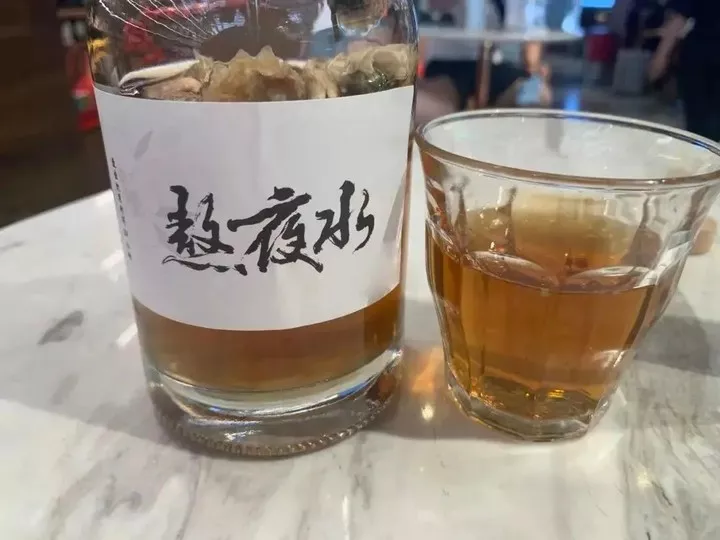
▲ Image from: gafei.com
Health is a marketing label and a real need, and the two are as intertwined and cyclical as the chicken begets the egg. But what does the grand concept of health really mean?
According to TaoTao, there are 2 key points to achieving health: firstly, a balanced nutrition, consuming all types of nutrients; and secondly, finding the right way to eat for you.
It is customary to eat rice in this country, but not everyone is adapted to eating this way. You can try to keep track of your body, such as what you eat every day, what foods are acceptable and what foods are uncomfortable to eat, and then listen to your body's reaction and choose what works for you; we no longer eat rice like we used to, where everyone ate rice and I ate rice, or everyone ate bread and I ate bread.

▲ Image from: The Eater
For TaoTao, breakfast might be avocado with oatmeal or millet porridge with chia seeds, while Chinese food and dinner are basically home cooked, with a preference for lighter flavors and frequent consumption of deep-sea fish. On a hot summer day, she used to whip up a fruit shake with a good mix of oats, bran and protein powder.
There is no shortage of people who are as happy sticking to a healthy diet as they are drinking milky tea, but for the most part, junk food is a major reward recognized by the nervous system, and eating healthy is a habit that takes a long time to develop, and it comes with more control and self-restraint, reminiscent of the line from The Narrow Gate, 'So great are the temptations that we can only restrain them with good virtue'.
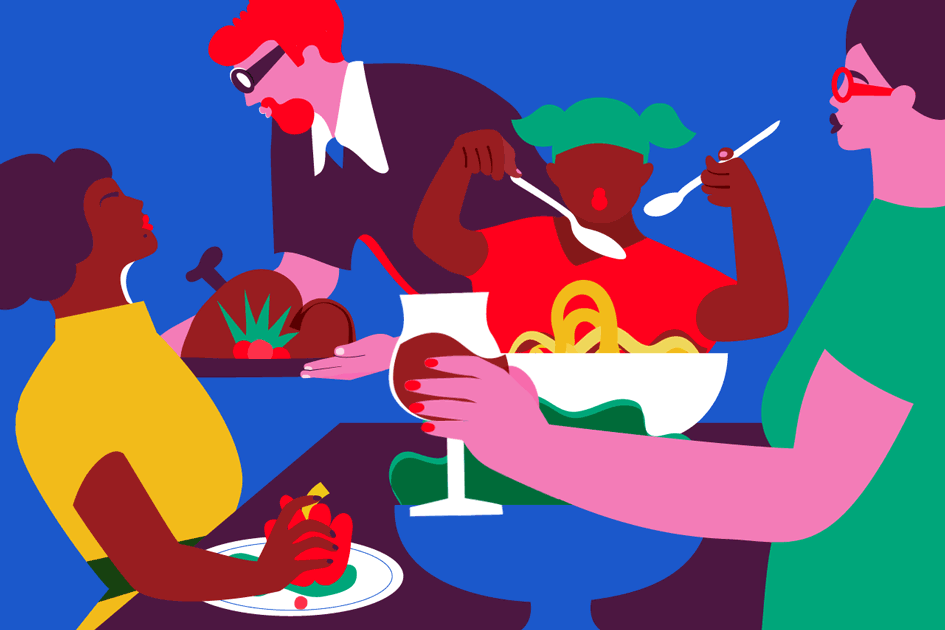
▲ Image from: nytimes
However, physical health is not only affected by dietary habits and it is not possible to get high on certain foods alone.
Dr. Dylan MacKay, a human nutritionist, believes that people often overestimate the immediate effects of what they eat while underestimating their long-term effects. Also, there are many factors that affect health, and diet is only one of them. The environment, physical activity and genes all play an important role in this.
Keep your mouth shut and your legs open, the only six words of truth are worth mentioning again.
So-called health is such a hands-on thing to do.